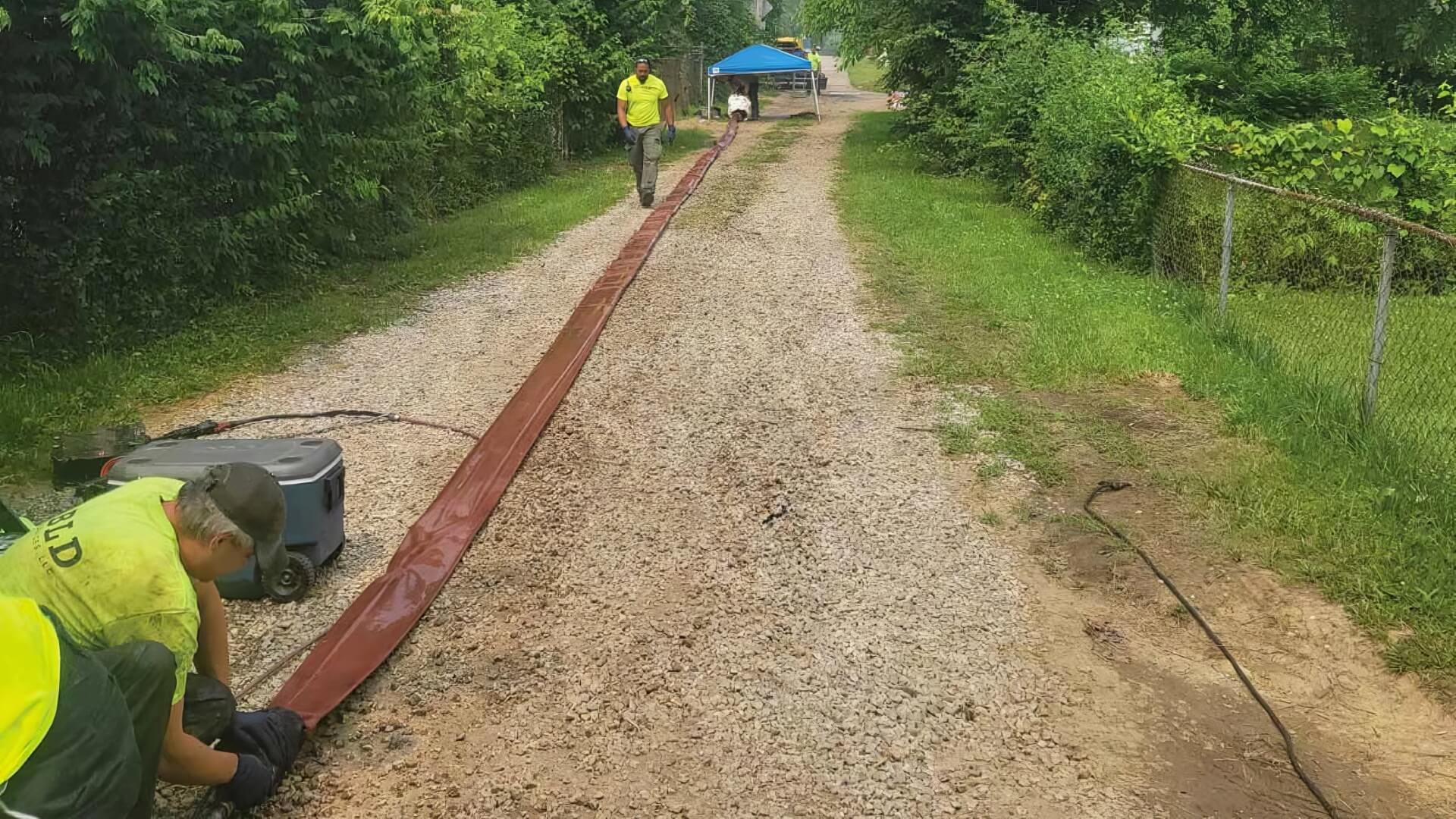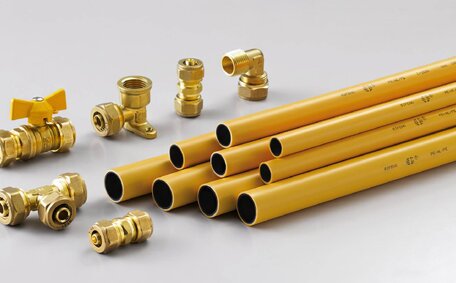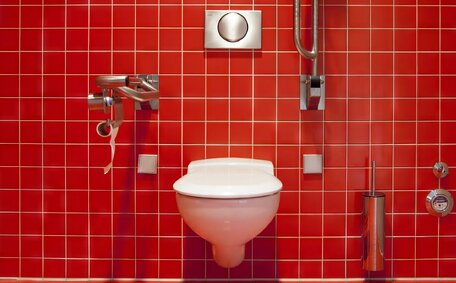Introduction to Cooking Habits that Clog Drains
Many of us don’t realise that our everyday cooking habits can wreak havoc on our home’s plumbing.
From frying foods to boiling pasta, the way we prepare meals often leads to clogged drains and pipes. From frying foods to boiling pasta, the way we prepare meals often leads to clogged drains and pipes.
One of the biggest drain offenders is pouring fats, oils, and grease down the sink. These liquid fats may seem harmless as they wash down, but as they cool, they congeal and coat pipes. Food particles then stick to these fatty deposits, causing a thick sludge that blocks water flow.
Avoid pouring excess oils from cooking down drains. Instead, collect them in a container to discard in the trash.
Starch-heavy foods like pasta, rice, and potatoes can also clog when washed down a drain. As these starchy foods cool, the starches congeal into a gummy glue that adheres to pipe walls.
Allow water used for boiling starches to cool before draining to avoid buildup. Scrape plates into the trash rather than rinsing excess starch into drains.
Even small food particles that make it down the drain can accumulate over time. Garbage disposals may seem like an easy solution, but improper use can damage blades and pipe joints.
Avoid overloading disposals and consider composting vegetable scraps instead. Use drain covers to catch particles before they go down sinks.
By understanding how everyday cooking contributes to clogs, we can adopt habits to keep drains clear. Proper kitchen practises prevent blockages and keep water flowing smoothly.
Fats, Oils and Grease
Fats, oils, and grease play a major role in clogging drains during food production and preparation. Many common cooking methods produce excess fats, oils, and greases that homeowners may unknowingly wash down the drain. Deep frying, sautéing, roasting meats, and creating sauces or dressings all generate oily byproducts.
When these oily substances are poured down drains or garbage disposals, they gradually cool and solidify, coating the insides of pipes. Fatty oils stick to pipe walls and allow other food particles to adhere, creating a thick layer of gunk that impedes water flow. To avoid drain blockages, it’s critical to safely contain and dispose of fats, oils, and grease rather than pouring them down drains.
Pouring Fats, Oils and Grease Down the Drain
One of the worst cooking habits for drains is pouring fats, oils, and greases down the sink. Although liquid when hot, these oily substances congeal as they cool, coating the insides of pipes. Pouring cooking oils like vegetable, canola, olive, or coconut oil down the drain gradually leads to clog formation over time. Although liquid when hot, these oily substances congeal as they cool, coating the insides of pipes.
Fats and oils poured down drains stick to pipe walls and allow food scraps and particles to adhere, creating a thick layer of greasy sludge that blocks water flow.
All it takes is repeatedly putting small amounts of oil and grease down the drain after cooking meals. Instead, use paper towels to wipe greasy containers before washing, and collect bacon drippings or other fats in a heat-safe container.
To avoid clogs, refrain from pouring these substances down drains. When washed down the drain, fats, oils, and grease solidify and accumulate. When washed down the drain, fats, oils, and grease solidify and accumulate. Once cooled and solidified, fats can be discarded in the trash. As more grease is poured, the layer thickens until it nearly blocks the pipe.
Grease Buildup in Pipes
When fats, oils, and grease are repeatedly washed down drains, they gradually accumulate in pipes. Food particles stick to these greasy layers, allowing grime to build up over time.
As oils cool and solidify, they coat pipe interiors. Small globules merge to form thick layers of fatty deposits.
This grease buildup has major consequences for plumbing. As pipes narrow from greasy sludge, water flow slows. Sewage can even back up, causing overflows and foul odours.
Sinks and tubs drain sluggishly as water struggles to pass blocked pipes. Pipe interiors become totally blocked with rock-hard grease, necessitating drain cleaning or pipe replacement.
Preventing grease buildup starts with proper kitchen habits. Preventing grease buildup starts with proper kitchen habits. Preventing grease buildup starts with proper kitchen habits. Preventing grease buildup starts with proper kitchen habits.
Use strainers and scrapers to keep food particles out of sinks.
Food Scraps
Even small food scraps that go down the kitchen sink drain can accumulate over time and lead to clogged pipes. Even small food scraps that go down the kitchen sink drain can accumulate over time and lead to clogged pipes.
Pieces of vegetables, meat, eggshells, and other debris build up in drains since they have nowhere else to go.
Using sink drain screens and stoppers can help catch these food particles before they even reach pipes. Using sink drain screens and stoppers can help catch these food particles before they even reach pipes. Composting vegetable peels, cores and trimmings is another solution, diverting food waste from sinks entirely.
Some screens twist in for easy removal and cleaning.
By changing habits to keep food scraps from accumulating in drains, homeowners can avoid irritating clogs. Small adjustments like using drain screens and composting make a big difference in preventing buildup and blockages over time.
Putting Food Down the Garbage Disposal
Garbage disposals may seem like an easy solution for getting rid of food waste, but improper use can lead to clogged and damaged drains. Force-feeding large amounts of food scraps into the disposal overwhelms the grinding mechanism and leads to jamming or blockage.
Even small amounts of starchy or stringy foods can build up over time.
Only put small amounts of soft, pulp-free food waste down the disposal. Turn on cold water before and during food processing to harden fats and flush particles down the drain. Allow the disposal to run for 30 seconds after grinding to flush the drainline.
Never put grease, oils, bones, shellfish shells, egg shells, coffee grounds, or starchy foods like rice, pasta or potato peels down the disposal as these are prone to clogging drains.
Carefully using your garbage disposal can keep plumbing running smoothly. But overloading it with large amounts or the wrong types of food waste defeats its purpose and leads to blockages. Follow best practises and limit disposal use to small amounts of compatible soft foods.
Allowing Food to Accumulate
When food scraps are routinely washed down the sink, they accumulate in your pipes over time. Small bits of vegetable peels, meat, grease, and other debris have nowhere to go except your drainage system. As food particles build up, they accelerate the formation of blocked drains.
Allowing food waste to go down the drain day after day enables clogs to form more quickly.
Your pipes become coated with grease and laden with debris. Drainage slows as pipes narrow, and clogged drains can eventually result. But this buildup can be avoided.
Using sink strainers, composting food scraps, and carefully operating the garbage disposal prevents accumulation. Proper kitchen habits keep drains clear, rather than dumping food particles down pipes. With diligent practises, homeowners can stop food waste from amassing in drains and causing problems.
Signs of Clogged Drains
Several signs can indicate a clogged or blocked drain in your home’s plumbing:
- Slow Draining: Water drains sluggishly from sinks, tubs, and showers, sometimes not fully emptying.
- Gurgling Sounds: Loud gurgling noises come from drain lines as water struggles to pass through a partial blockage.
- Plumbing Backups: Toilets overflow or backup when sewage is unable to pass through clogged drain pipes.
- Sewage Odours: Decaying debris in blocked drains emits a foul, unmistakable stench.
- Wet Spots: Water pools around floor drains, leaking out around clogged entries.
- Insect Infestations: Flies and cockroaches congregate around affected drains.
Catching clogs early allows for easier clearing before they worsen. Be proactive and watch for these telltale signs of a blocked drain.
Preventing Clogged Drains
There are several effective ways homeowners can prevent clogged drains caused by cooking residue and debris:
- Install sink strainers and drain filters to catch food scraps before they reach pipes. Regularly empty strainers into the trash.
- Collect oils and grease in containers and dispose in the trash after solidifying. Avoid pouring down drains.
- Limit garbage disposal use to small amounts of compatible waste. Avoid starchy, stringy foods.
- Compost vegetable peelings, eggshells and other food waste instead of using the sink disposal.
- Combine oils, grease and food scraps into a waste container and dispose in the trash.
- Scrape plates and cookware thoroughly before washing to remove stuck-on foods and grease.
- Follow all garbage disposal manufacturer instructions to avoid overloading the unit.
- Use a drain cleaner monthly to flush pipes and keep water flowing freely.
With some simple changes to kitchen habits, homeowners can keep drains clear of food buildup and debris. Proper grease disposal and using sink strainers prevents pipe-clogging and blockages.
Drain Maintenance
To keep drains free of blockages caused by food and grease buildup, it’s important to practise regular maintenance. Here are some tips for proper drain care:
- Use a drain strainer or catcher in sinks to trap food particles before they go down the drain. Empty strainers into the trash regularly.
- Flush drains weekly by running hot water for a few minutes to melt grease deposits and clear debris. Avoid chemical drain cleaners when possible.
- Pour 1/2 cup baking soda down the drain followed by 1/2 cup vinegar once a month. The chemical reaction can help dissolve grease and keep pipes clear.
- Use a zip-it drain cleaning tool to manually remove hair and debris from shower and sink drains.
- Consider having your drains professionally cleaned once a year by a plumber like Coogee Plumbing to prevent serious blockages from developing.
- Call in a professional plumber right away if you have a serious clog or backup. Don’t try to clear major blockages yourself.
With preventive care and attention, homeowners can keep their drains free of problematic clogs. But if major backups occur, trust the drain cleaning experts at Coogee Plumbing.
Conclusion
In summary, many daily cooking habits can contribute to clogged drains over time. Using drain screens, proper disposal practises, and regular maintenance keeps pipes clear.
Pouring fats, oils and grease down sinks allows buildup to form, while small food particles accumulate. Clogs can be prevented by changing habits like collecting grease, composting scraps and limiting use of the garbage disposal.
If drains become severely blocked, don’t hesitate to call the experts at Coogee Plumbing. Our technicians can diagnose issues and use state-of-the-art equipment to clear even the toughest clogs. With proper kitchen practises and periodic professional drain cleaning, homeowners can avoid plumbing backups.
Protect your drains by staying mindful during food preparation and cooking. Simple changes make a big difference in preventing slow drains and blockages. Together, we can keep your plumbing flowing smoothly for years to come.






